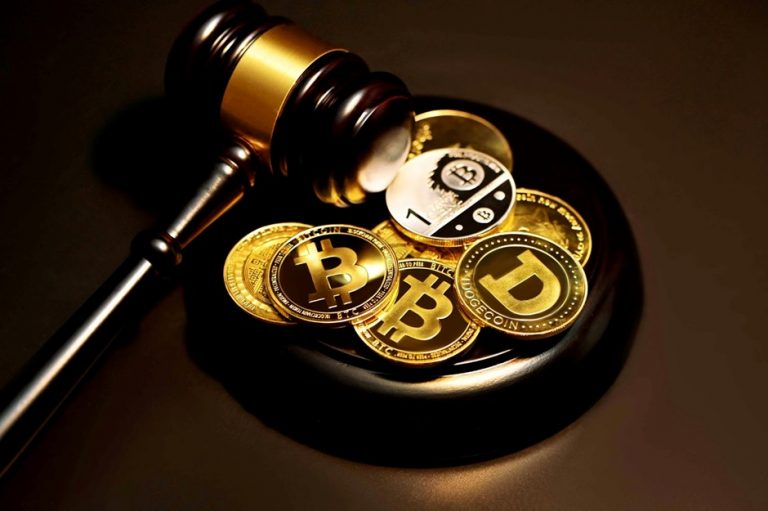
As the world increasingly embraces digital currencies, the need for comprehensive regulatory frameworks becomes paramount. Brazil, a nation with a burgeoning crypto market, is no exception. The Central Bank of Brazil has embarked on a multi-phase plan to establish a robust regulatory framework for cryptocurrencies and virtual asset service providers (VASPs) by the end of 2024.
The initiative follows Decree 11,563 of 2023, which grants the Central Bank authority to oversee VASPs while maintaining the roles of the Securities and Exchange Commission (CVM) and the Special Secretariat of the Federal Revenue of Brazil (RFB). This collaborative effort aims to enhance transparency, protect investors, and target inappropriate practices that harm consumers, such as scams and fraud.
The regulation of cryptocurrencies presents a complex puzzle for policymakers worldwide. The decentralized nature of digital currencies, the absence of a central authority, the difficulty in monitoring and enforcing regulations, and the global reach of the crypto market all contribute to the regulatory challenges.
Register for Tekedia Mini-MBA edition 19 (Feb 9 – May 2, 2026): big discounts for early bird.
Tekedia AI in Business Masterclass opens registrations.
Join Tekedia Capital Syndicate and co-invest in great global startups.
Register for Tekedia AI Lab: From Technical Design to Deployment (next edition begins Jan 24 2026).
One of the primary hurdles is the protection of consumers. Participants in crypto markets are vulnerable to risks such as theft, volatility, and misinformation. Despite these risks, only a fraction of countries has established rules to safeguard consumers. For instance, India and France require advertisers to disclose the risks associated with crypto-investing, while South Korea mandates crypto-asset service providers to obtain an information security certificate to reduce theft risks.
Another significant challenge is the need for global coordination. Cryptocurrencies operate on a global scale, making it imperative for regulations to transcend national boundaries. The International Organization of Securities Commissions has laid out recommendations for global rules on managing crypto and digital assets, emphasizing the need for a harmonized approach.
Furthermore, the rapid evolution of the crypto market often outpaces regulatory developments, leading to a lag in consumer protection rules. This gap necessitates a proactive and agile regulatory stance to keep up with the dynamic nature of cryptocurrencies.
The regulatory process in Brazil is set to evolve through phases, reflecting the growing understanding of regulators and international guidelines. Key steps for 2024 include developing a second public consultation on providers’ performance and authorization, establishing internal planning for stablecoin regulation, and improving the complementary framework for VASP activities. Additionally, the Central Bank will collaborate with other bodies to address specific virtual asset issues, particularly regulating stablecoins within payments and the foreign exchange market.
The Central Bank’s approach is not only methodical but also inclusive, involving public consultations to gather input from various stakeholders, including industry participants, experts, and the general public. The first consultation, held in late 2023, aimed to collect feedback on the proposed regulations and address aspects not covered by the 2022 law, such as the segregation of assets held by VASPs. The second public consultation, scheduled for the second half of 2024, will focus specifically on the regulatory texts, incorporating the input received during the initial consultation to establish a robust regulatory framework with broad support from society.
This phased approach to regulation is indicative of Brazil’s commitment to creating a secure environment for crypto transactions. By finalizing the regulatory proposals using insights from public consultations, the Central Bank ensures that the regulations benefit from public and market input, producing high-quality, well-informed standards.
The anticipated regulations are expected to focus on various aspects, such as anti-money laundering, combating terrorist financing, and monitoring suspicious activities. These measures are crucial for maintaining the stability of the National Financial System and fostering a climate of trust and security for investors and users alike.
As Brazil moves towards finalizing its crypto regulations by the end of 2024, the global crypto community watches with keen interest. The success of Brazil’s regulatory framework could serve as a model for other nations seeking to balance the promotion of innovation with the need for investor protection and market integrity. The journey ahead is complex, but the potential rewards for Brazil’s financial ecosystem and the broader crypto market are significant.



